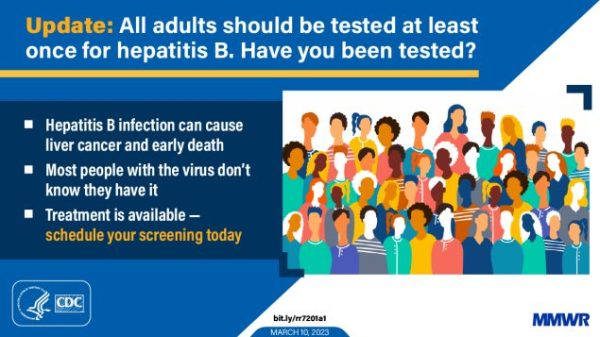
People with chronic hepatitis B virus (HBV) infection are at increased risk for liver cancer and cirrhosis.
Most people who have a chronic HBV infection do not know they have it, and not everybody feels comfortable disclosing factors that might put them at increased risk which is why the previous risk-based HBV screening and testing recommendations have been updated in order to more effectively identify individuals who may have an infection.
The new CDC screening recommendations have been updated to indicate that the following groups should receive a triple panel HBV screening:
- All adults at least once during their lifetime
- People who are pregnant
- Anyone who requests it, even if they haven’t indicated they are at increased risk (Some may be reluctant to disclose risks due to stigma.)
These tests can identify who has an active infection and needs further care, who has a resolved infection and might be susceptible to reactivation, who is susceptible and needs vaccination, or who has antibodies from vaccination.
The guidelines also expanded risk-based testing recommendations to include the following factors that increase risk for HBV infection:
- Persons incarcerated or formerly incarcerated in a jail, prison, or other detention setting
- Persons with a history of sexually transmitted infections or multiple sex partners
- Persons with a history of hepatitis C virus infection
While vaccination continues to be the best way to prevent HBV infection, universal screening will help to improve timely diagnosis and to connect people to care when they test positive for HBV, in turn saving lives.
| See how this connects to the Wisconsin Cancer Plan: | Chapter 2: Risk Reduction |
